 What a rewarding year 2016 has been! Keeping up the momentum from last year, AWARE has made leaps and bounds in our work towards gender equality through our advocacy, services and programmes. Your support made all our efforts possible. Here are some highlights of the year.
What a rewarding year 2016 has been! Keeping up the momentum from last year, AWARE has made leaps and bounds in our work towards gender equality through our advocacy, services and programmes. Your support made all our efforts possible. Here are some highlights of the year.
1. We championed rights of single parents and influenced policy changes that support unmarried mothers
One big achievement from 2016 was the government’s announcement of increased benefits and protection for single mothers. Unmarried mothers now receive 16 weeks of maternity leave – just like married mothers – and their children will be eligible for Child Development Accounts. This great news came after we launched #asinglelove, a powerful public campaign that supports and empowers single parents and their families. Together with partners Kinetic and Daughters of Tomorrow, we reached out to thousands through a family carnival for single parents, an evocative video with single mothers, and powerful posters visible in train stations and shopping malls islandwide that featured real stories of single parent families. We hope 2017 will bring more policy changes that address the difficulties single parents still face.
2. We raised $215,829 for a programme to support lower-income women
Thanks to generous donors and sponsors, including Kwan Im Thong Hood Cho Temple and Lee Foundation, a whopping $215,829 will be invested in empowering lower-income women with back-to-work support, confidence building, skills training, job placements, mentorship, entrepreneurial support through collaborations with industry partners and research. The money was partially raised at the WORLD Ball (which raised a total of $370,000!) to support all our programmes, where we shed light on how society can help lower-income women break out of the cycle of poverty. Our movement to empower these women, Building Dreams, is a joint project with non-profit group Daughters of Tomorrow and will kick off in 2017.
3. We sparked a men’s movement against gender violence through White Ribbon campaign
Minister Tan Chuan-Jin, Olympic athlete Joseph Schooling, Minister Ong Ye Kung and accomplished thespian Adrian Pang were just some of the prominent male leaders we brought together for the White Ribbon Campaign, an annual global effort to promote men and boys’ commitment to end violence against women. With the support of the High Commission of Canada and the Ministry of Social and Family Development, we teamed up with Michael Kaufman – one of the co-founders of the global White Ribbon Campaign – for a series of successful workshops and trainings on sexual consent and active fatherhood. One such event was a panel hosted by Deutsche Bank, where Minister Tan Chuan-Jin and corporate leaders discussed how companies can promote active fatherhood and encourage men to play bigger roles in caregiving.
4. We brought up gender issues faced by Malay-Muslim women in Singapore
Our GEC (Gender Equality IS Our Culture) campaign published “Perempuan”, an anthology written by and for young Muslim Singaporean women. The collection of deeply personal and compelling narratives reveals how Muslim women’s ethnic and religious upbringings have shaped their lives. We’re honoured to provide a platform for these heartfelt experiences that critically address the stereotypes and pressures Muslim women face. You can order a copy of the e-book in one of the online retailers listed here.
We also tirelessly brought attention to the prevalence of “sunat perempuan”, a form of female genital cutting that is still practised in Singapore, receiving news coverage from the BBC, Thomson Reuters, Berita Harian, Yahoo and Business Insider.
5. We fought against sexual violence as SACC strides confidently into its fourth year
SACC, Singapore’s only specialist service for survivors of sexual assault, continued to reach out to those who need support through our expanding services. In 2016, we assisted over 320 clients through our Helpline, WhatsApp service, counselling and legal advice sessions. We also launched our first support group for sexual assault survivors to share their journey of recovery, and receive support from one another.
In November, many members of the public spoke up against Teenage magazine’s victim-blaming response to a young woman’s experience of rape. Our own letter received widespread praise, and prompted further public discussions on consent and sexual assault. We hope this is a sign that Singaporean society is changing to be more supportive of survivors.
6. We achieved public recognition for our excellent governance and transparency
We are honoured to receive both the Charity Governance Award as well as the Charity Transparency Award this year. Organised by the Charity Council, the awards celebrate good governance and disclosure practices in the charity sector. In the last few years, AWARE has shifted from a volunteer-based group to a professional organisation, and the CGA award marked a huge milestone in our progress. We are highly committed to integrity in our work, and will continually find ways to improve and adopt best practices in governance and donor relations.
7. We raised important policy issues through our research and advocacy
Our advocacy and research team worked tirelessly to foreground policy issues that affect marginalised groups. Our Budget recommendations at the start of the year highlighted the importance of building a care economy to meet burgeoning eldercare needs, which has a disproportionate impact on women. We also released reports on the experiences of women (especially foreign wives) living with HIV or HIV-positive partners, and on how state policies can better support foreign wives. Our work on reforming suicide laws to better support victims also secured a parliamentary announcement of a review of the laws that currently makes suicide a crime.
8. We championed women’s rights at the UN Human Rights Council session in Geneva
We brought gender equality in Singapore to the world stage when we went to Geneva for the United Nations (UN) Human Rights Council session in June. The session was part of the Universal Periodic Review (UPR) report, a process where UN member states offer recommendations to one another on matters of human rights. We raised issues such as the underrepresentation of women in politics, the marital immunity for rape, systemic discrimination against single parents, the tenuous legal status of foreign wives, and the treatment of domestic workers.
9. We brought together members of civil society to discuss action and advocacy
We organised the second chapter of Apa Itu Activist? A Civil Society Forum for Action and Advocacy in August, bringing together over 250 students, social workers, artists, academics, activists and community organisers to discuss strategies for social change. The forum was also a platform for the Singapore Advocacy Awards ceremony, presented by TWC3, where we honoured veteran civil society advocates such as Dr Ho Hua Chew (nature conservationist) and Kirsten Han (human rights journalist).
Thank you so much for your support, passion and generosity. See you next year!
 Catalyse Consulting, which was formed at the end of 2015, offers corporate training and consulting in Workplace Harassment, Diversity & Inclusion, and People-Centred Leadership. Reporting to the Catalyse Consulting Manager, the role involves providing support to the overall operations of Catalyse Consulting, including co-ordinating workshops and events, liaising with trainers and clients, and managing the sales of services and products. We are looking for a self-starter with excellent organisation and communication skills, as well as strong marketing and interpersonal skills.
Catalyse Consulting, which was formed at the end of 2015, offers corporate training and consulting in Workplace Harassment, Diversity & Inclusion, and People-Centred Leadership. Reporting to the Catalyse Consulting Manager, the role involves providing support to the overall operations of Catalyse Consulting, including co-ordinating workshops and events, liaising with trainers and clients, and managing the sales of services and products. We are looking for a self-starter with excellent organisation and communication skills, as well as strong marketing and interpersonal skills. 



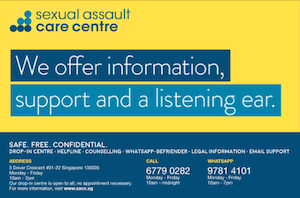 Our Sexual Assault Care Centre (SACC) will be operating with limited resources for two weeks (
Our Sexual Assault Care Centre (SACC) will be operating with limited resources for two weeks ( What a rewarding year 2016 has been! Keeping up the momentum from
What a rewarding year 2016 has been! Keeping up the momentum from 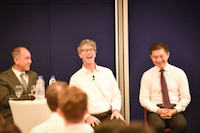 This year, the White Ribbon Campaign encouraged men to be positive role models for the young men and boys in their lives by redefining masculinity and manhood in more compassionate and inclusive terms. The campaign focused on men in their role as caregivers and highlighted active fatherhood as a key component to ending violence against women. Through allying with prominent men, like Joseph Schooling, who were willing to speak out against gender violence, the campaign hoped to inspire more men and boys in Singapore to reflect on these issues.
This year, the White Ribbon Campaign encouraged men to be positive role models for the young men and boys in their lives by redefining masculinity and manhood in more compassionate and inclusive terms. The campaign focused on men in their role as caregivers and highlighted active fatherhood as a key component to ending violence against women. Through allying with prominent men, like Joseph Schooling, who were willing to speak out against gender violence, the campaign hoped to inspire more men and boys in Singapore to reflect on these issues. 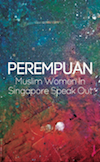 My body belongs to me. My body is
My body belongs to me. My body is  In view of International Migrants Day on 18 December, AWARE has released
In view of International Migrants Day on 18 December, AWARE has released 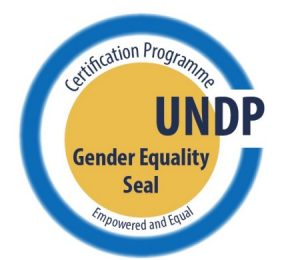
 The glass ceiling is, sadly, alive and well (“Glass ceiling has already been broken; Nov 27). Family norms and societal expectations of towards women remain real forces – as evidenced in statistics and state policies – which powerfully structure women’s opportunities and limit the choices open to them.
The glass ceiling is, sadly, alive and well (“Glass ceiling has already been broken; Nov 27). Family norms and societal expectations of towards women remain real forces – as evidenced in statistics and state policies – which powerfully structure women’s opportunities and limit the choices open to them.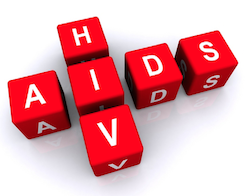 29 November 2016 –
29 November 2016 –